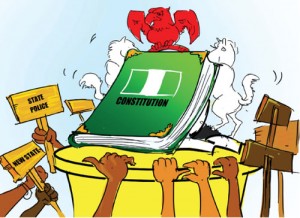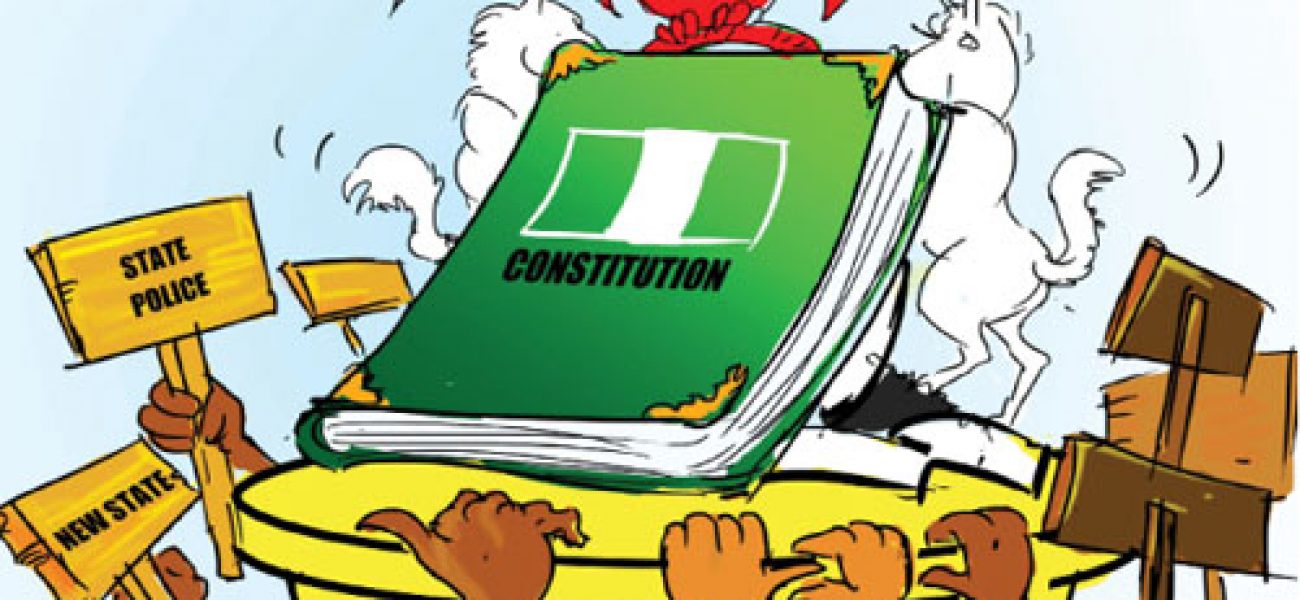 The Senate in April disclosed that it would be voting on the constitutional amendments as contained in its Bill for an Act to Further Alter the Provisions of the Constitution of the Federal Republic of Nigeria 1999 and For Other Matters Connected Therewith.
The Senate in April disclosed that it would be voting on the constitutional amendments as contained in its Bill for an Act to Further Alter the Provisions of the Constitution of the Federal Republic of Nigeria 1999 and For Other Matters Connected Therewith.
The Bill which was presented by Senator Ike Ekweremadu, Chairman of the Committee on Constitutional Review, seeks to amend section 68, section 109, section 134, section 179, section 225,section 251, section 3(b) of clause 2 of the 4th Alteration Bill, section 9, and to alter the Third Schedule to include former Senate Presidents and Speakers of the House of Representatives in the membership of the Council of State.
Majority of the proposals deal with the facilitation of electoral matters. For instance, the alterations proposed in sections 68 and 109 mandates the Clerks of the National Assembly and the State Houses of Assembly to notify INEC within 7 days of the existence of a vacancy arising from death or resignation of a member of the National Assembly. Similarly, section 134 and 179 extend the time for conducting Presidential or gubernatorial elections to 21 days rather than the present 7 days and empowers INEC to deregister any political party that fails to win a seat at the national, state and local government level. The Federal High Court is also given exclusive power to hear matters pertaining to electoral offences.
In addition to these constitutional amendment proposals aimed at facilitating the electoral process in April, the Senate also consolidated and passed the Electoral (Second Amendment) Bill 2013 for a second reading . Among others, the amendments provide for the conduct of the Presidential, Governorship and Legislative Elections to be held on the same day, provide for accreditation through direct data capturing at all polling points, grants powers to INEC to issue duplicate voters card, provides for a mandatory presidential campaign debates and specifies a renewable term of four years for the INEC secretary.
It appears that the proposals seem to favour an inclusive included approach in its attempt to include all parties as stakeholders in the facilitation and credibility of elections. For instance, the proposals aim to strengthen the role of political parties in the electoral process by allowing political parties to appoint of a polling agent for each polling unit and collation centre. The compulsory Presidential election debates also provide an opportunity for citizens to participate in the democratic process by providing a platform where a more informed electorate can assess contestants proposed policy decisions. The Courts are also given power to disqualify and relinquish a candidate’s seat where where he provides false information in his affidavit and can impose a 3 years imprisonment on any party that colludes to fabricate an election result. By allowing for direct data capturing at all polling units and by granting INEC the power to issue duplicate voter’s card, it appears that the proposals seek for more credibility in the electoral process.
It is hoped that the enthusiasm that has followed the second passage of the Electoral Act will spur the Senate into action by harmonising its positions with the House of Representatives on the Constitutional Amendment Bills that had been passed since July 2013. The House of Representatives voted on further amendments to the Constitution since January this year.

